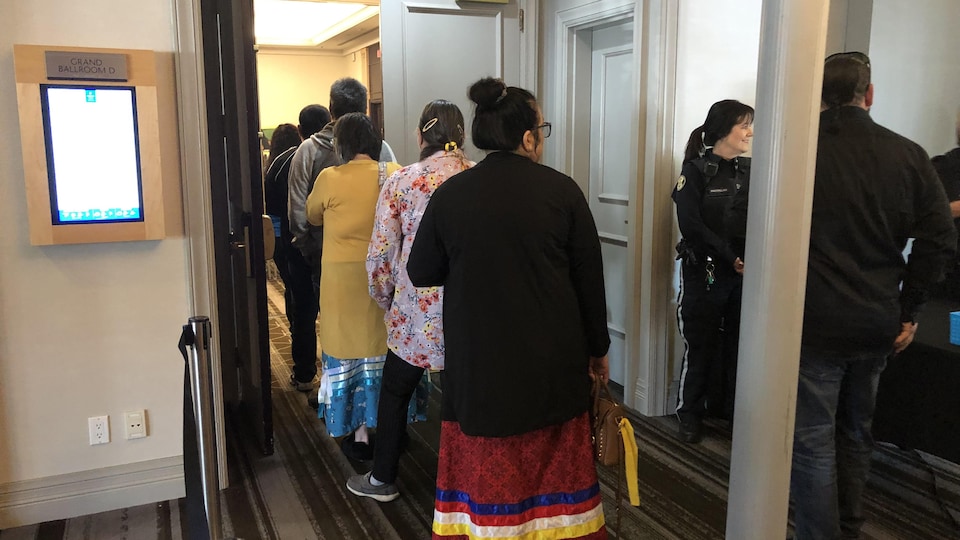On this last day of the coroner’s investigation into Chantel Moore’s death, a former police officer believes Jeremy Son made an acceptable use of force.
The last witness presented himself as an expert in the use of police force. Chris Butler, a police officer with 34 years of experience, now retired, is a law enforcement consultant.
He explained that before using his gun against a person, a police officer must assess, quickly, if the individual has the possibility, the intention and means to cause serious injury and death.
According to Chris Butler, Chantel Moore has the ability to cause serious injury or death while holding a knife. He said he intentionally caused injury or death by getting out and walking towards police officer Jeremy Son. And Chris Butler said the knife was a way to cause injury or death, because no one could protect the officer, especially since Chantel Moore, according to him, was about 5 to 7 feet from the officer.
The former police officer believes Jeremy Son has no choice
According to estimates presented by Chris Butler, a person can cross 7 feet in 65 hundredths of a second, or in less than a second. This, Butler pointed out, leaves little time for the officer to react. According to Butler, Constable Son faces imminent danger of being injured or killed.
Constable Son, according to Chris Butler, had no chance to reposition himself, or avoid confrontation, because he was stuck on the balcony, on the side where there was no staircase.
If the officer moved in the other direction, to the side of the stairs, he could move away, Butler said. But in a crisis, due to high levels of stress, a police officer may lose the possibility of making reasonable decisions, Chris Butler advances, to explain Jeremy Son’s decision.
In conclusion, Chris Butler believes that Son’s use of police force met police training standards.
The expert recommends continued first aid
According to Chris Butler, it is not up to the police to determine whether the person is dead or not. The absence of a pulse does not mean that the person is dead.
In a stressful situation, it is very difficult for a police officer to diagnose whether there is a pulse or not. Chris Butler recommends that once first aid procedures begin, it should continue until paramedics arrive.
In Chantel Moore’s case, officers stopped resuscitation when they determined there was no pulse.
Some other recommendations
The former police officer made several recommendations related to the way police acted after the intervention that led to Chantel Moore’s death.
He recommends that the witnesses be separated from the beginning, so that the interaction between them does not alter the memory of the facts that each may have.
He also believes that the police should have a clear protocol on seizing used weapons, to ensure that evidence is not lost.
According to Chris Butler, photos of the crime scene should be taken as soon as possible.
Butler also argues that police officers directly involved in the events should not have access to the videos available. It can change their memory of events, he says. Chris Butler said Jeremy Son had access to a video, before testifying before investigators by Quebec’s Bureau of Independent Investigations.
Because many police forces are involved in crisis scene management, Chris Butler recommends that, in similar situations, clear agreements on each other’s responsibilities be put in place.
Finally, Chris Butler believes that consideration should be given to providing police officers with non-lethal weapons, such as Tasers, non-lethal projectile weapons, etc. But according to him, Chantel Moore’s death would have been inevitable, if the police had one of these non -lethal weapons.
More information to come …
Source: Radio-Canada
